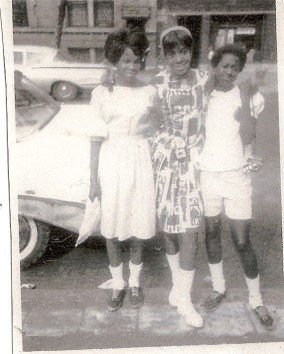“Spare the rod, spoil the child.” Paraphrased from Proverbs 13:24
The adage, If They Knew Better, They Would Do Better, has been a part my family lexicon for as long as I can remember. Recently ran across the “correct” version of the quote attributed to Maya Angelou “I did then what I knew how to do, now that I know better, I do better.”
This quote highlights the fact that parenting does NOT come with a handbook and the “skill” that you have consists of information passed down to you by elders that are a product, or a victim, of their own family’s style of childrearing. As an African American, I know intrinsically that the institution of slavery has impacted our interpersonal relationships and our child raising practices.
Have you noticed how we sometimes administer extra harsh verbal and physical punishment to those we love most, our mates and our children? Sit with that. This is the result of the psychic damage that hundreds of years of chattel slavery, and discrimination has heaped upon us. The dehumanization and beating of our children are remnants of slavery and the savage floggings administered by slaveowners meant to strike fear and force our psyches into a lifetime of submission.
My mother left Alabama in her teens during the Great Migration. She was raised under Jim Crow and hardwired many of her survival tips and fears into my brain. We were instantly and severely punished if while shopping we ever dared to touch ANYTHING in the store. Years later I would notice that white children seemed to be turnt loose in stores, in every environment, but we were always reigned in. “Look with your eyes, don’t touch with your hands.”
Fast forward to today. We tumble, are thrusted or embark upon parenthood with only the modeled behavior of parents, grandparents or authority figures to guide us in the raising of our own progeny.
My step dad was not a spanker. On the rare occasions that he raised his voice in anger it stung worse than my mother’s spanking. But I adapted my mother’s model of discipline and like her mother before her, I whipped my five children. Every family that uses corporal punishment has a “way.” Some families use a switch, singular or braided, others a designated strap, some used an ironing cord, which leaves raised welts that serve to further embarrass the child. In West Afrika where most of my children were raised, I disciplined with a thin “rattan” or switch, later in America, with a wide leather belt, no hitting above the butt and never with the buckle. I meant well but didn’t know a better way to gain obedience.
When my children became teens, we were either looking eye-to-eye or they were looking down at me. Whipping them stopped making sense and didn’t produce the desired results. I had to “guess again” about effective discipline because letting them go without boundaries, was not an option.

Me on the left with friends.
The teen years are the most painful years for the parent and the child. It’s when the little ones you thought you had under control push against parental limits. If you have set very rigid rules and don’t allow for two-way communication, you place distance between you and your child.
Michelle Obama in her book “Becoming” says the Robinson philosophy was “that they were not raising children, they were raising adults.” In the parenting paradox the maturation process demands that children push against your limits and at the same time, they require a safe space to retreat to so they can tell you, “Dad, I’m having these feelings for a boy,” or “Mom I think I screwed up.” Fear of harsh criticism or physical punishment maroons your loved ones on a remote island without a life raft.
It’s important and difficult to realize that some traditional ways of rearing our children need to change. Change is hard. I was blessed that with all my mistakes, my children are, in my opinion, all successful adults. Still, I’m painfully aware that I haven’t always set the best parenting model for them to follow.
It’s never too late and if we are going to strengthen our families by bridging the communication gaps between us and our children, we must confront our behavior around discipline and adjust. “I did then what I knew how to do, now that I know better, I do better.” Black Families Matter.
– Susan D. Peters
Susan D. Peters, aka, Ahnydah (ah-NIE-dah) Rahm, brings a wealth of experience gained as an expatriate living in West Africa. Her memoir Sweet Liberia, Lessons from the Coal Pot, received the Black Excellence Award for Non-Fiction from the African American Alliance of Chicago and the Mate E. Palmer award for Non-Fiction from the Illinois Press Women’s Association. Broken Dolls, Susan’s second book, represents her foray into the mystery market and is the first of a series featuring Detective Joi Sommers as its heroine. Her most recent publication is Stolen Rainbow, a short story focused on the post combat recovery of a beautiful marine captain after a devastating combat injury. Her work is featured in three anthologies, Baring It All, the Ins and Outs of Publishing, Signed, Sealed, Delivered … I’m Yours, a contemporary romance anthology, and The Anthology of the Illinois Woman’s Press Association. Buy her books online and at www.SusanDPeters.com.
Photos
Photo credit By Timothy H. O’Sullivan – http://www.learnnc.org/lp/multimedia/12772, Public Domain, https://commons.wikimedia.org/w/index.php?curid=10654222
L-R me, Pam Manns and Patricia Ann Brown
.png)
Comments